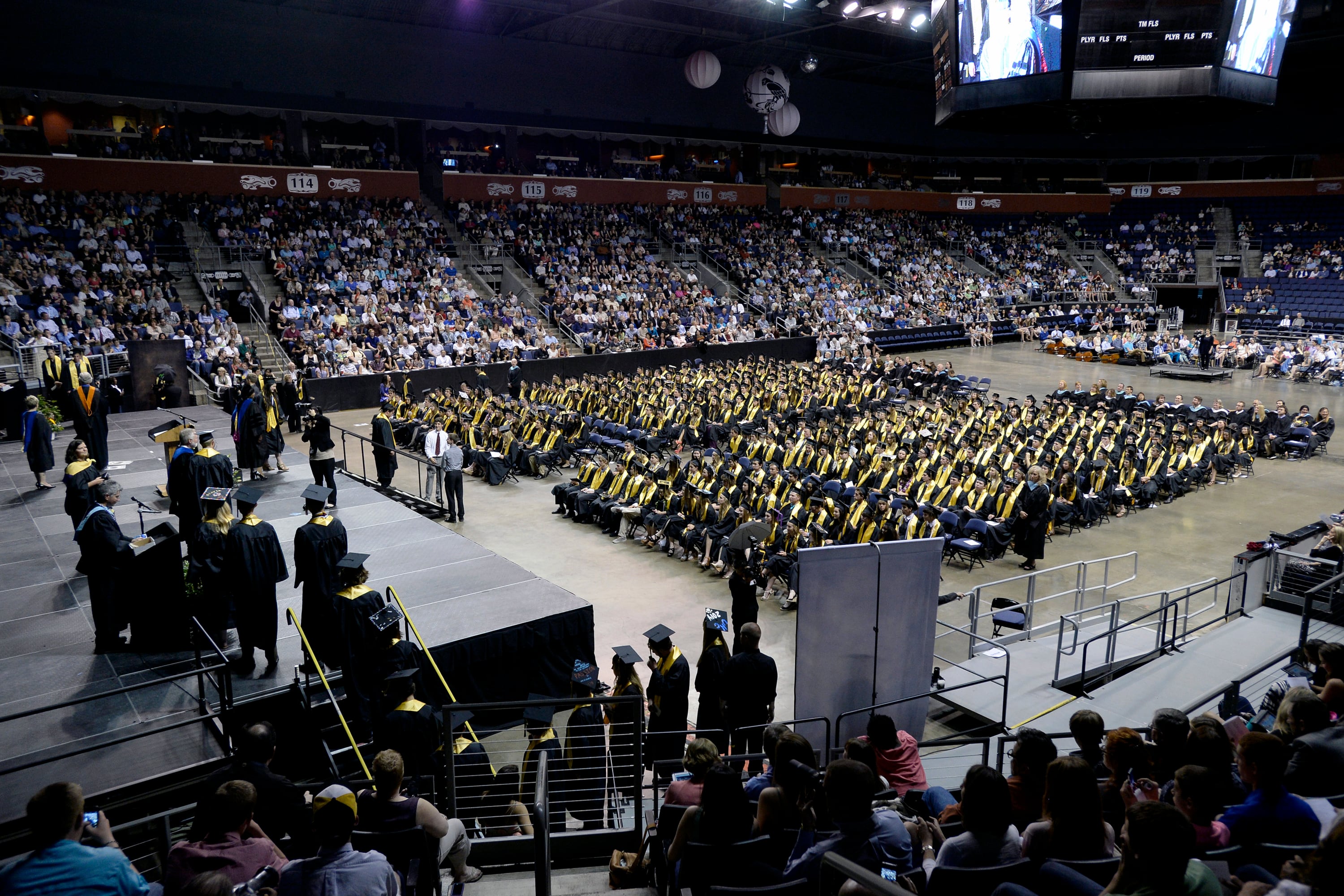Sign up for our free monthly newsletter Beyond High School to get the latest news about college and career paths for Colorado’s high school grads.
Thanks to a one-time investment last year, Colorado students in the Class of 2024 can receive a $1,500 scholarship to attend a state college or workforce program in the fall.
Students can also access a year of coaching, which will help some of those scholarship recipients during the summer months, through their first year, and into their second.
Together, the scholarships and coaching through the one-time $25 million Opportunity Next investment from Colorado lawmakers aim to help more students get to and persist through college, especially after enrollment declines since the pandemic. The money also attempts to address a statewide shortage in skilled labor, in which there are two available jobs for every unemployed person.
While the scholarship money provides an incentive, the coaching aspect of the program provides support that some experts say helps students finish their college education.
“We’re really doubling down on our investment in learners and connecting them with employers that have these in demand job openings so we can create and continue to create a competitive economy for all,” said Eve Lieberman, executive director of the state Office of Economic Development and International Trade.
To be eligible, a student must have graduated from a Colorado high school or earned an equivalent diploma during the 2023-24 school year.
Colorado students must also have completed the federal or state application for financial aid, not received a grant or scholarship through the Colorado Opportunity Scholarship Initiative, and plan to attend a Colorado institution or workforce development program, such as an apprenticeship.
Lieberman expects about 14,000 students statewide will get a scholarship. Schools and workforce programs will issue those on behalf of students, but students can search for programs that offer scholarships online. Scholarships are offered at four- and two-year colleges, as well as apprenticeships and other training programs.
Students can also apply on the same website to receive coaching from national nonprofit InsideTrack, a network meant to help students who face the greatest challenges to getting to and through college. The state is funding coaching through 2024.
The launch of the program comes at an opportune time for the state because many students have struggled to fill out the revamped Free Application for Federal Student Aid application. The issues with the new FAFSA system has meant some students haven’t received aid offers from colleges.
Students who have now graduated also have a harder time talking to counselors during the summer months as they transition from high school to college.
Steve Ast, InsideTrack senior vice president of partner success, said coaching ensures the state’s investment in students pays off by getting students the resources they need through the summer and into their second year of college. Coaching has been shown to boost student success in college programs by 5% to 15%, he said.
Coaches will work with students one-on-one and in groups. Sessions will focus on skills to balance work, personal, financial and school commitments, as well as individual plans to achieve the goal of completing a degree, certificate, or apprenticeship.
Coaches will also work with students to connect them to school-based and community resources, such as mental health, food pantry, or financial resources. Ast said students who get coaching have been shown to use services that will help them through college, including food pantries, tutoring, and professors’ office hours.
“Why put money into a learner if you’re not also going to provide them the support for them to be successful?” Ast said.
InsideTrack has provided Colorado students coaching services for years, including for Latin American Educational Foundation scholarship recipients. This will be the first time InsideTrack has worked on a statewide level in Colorado, but it has provided coaching services for Minnesota students and colleges and universities.
Ast said he hopes the program shows how valuable coaching is to students and convinces lawmakers to extend the program so students have the resources available to them through their college career.
“The goal of a coaching program is not to say, ‘Show up on campus the first day and good luck,’” Ast said. “It’s about setting the foundation appropriately for long term results.”
Jason Gonzales is a reporter covering higher education and the Colorado legislature. Chalkbeat Colorado partners with Open Campus on higher education coverage. Contact Jason at jgonzales@chalkbeat.org.






